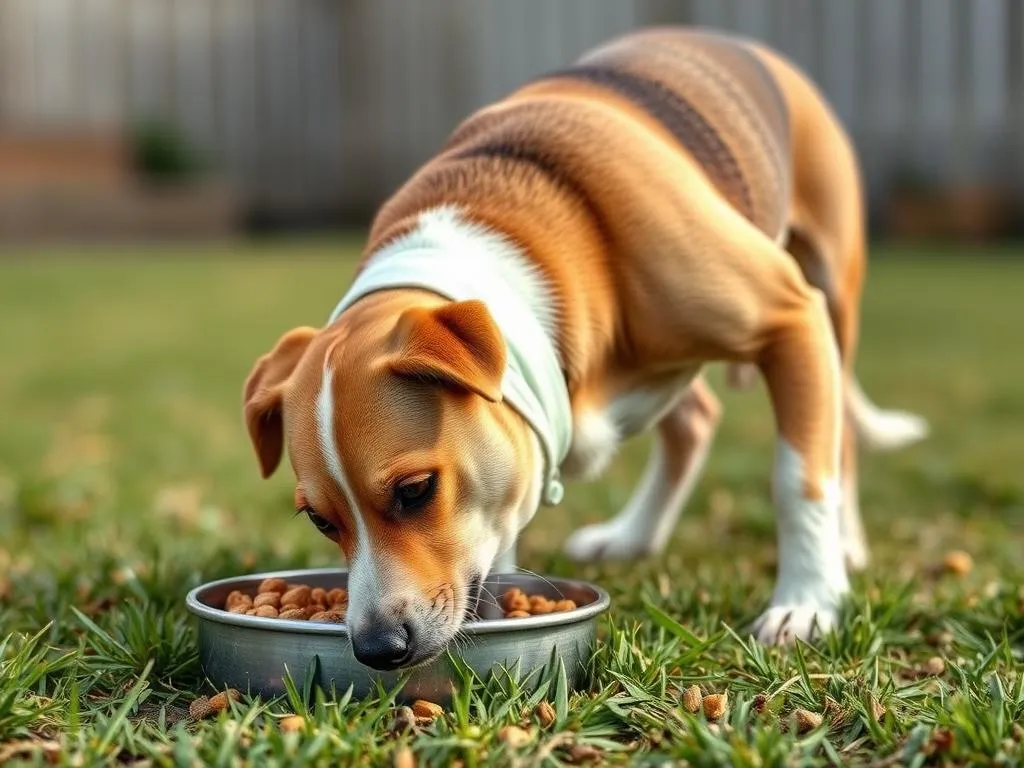
When it comes to our furry companions, diet plays a crucial role in their overall health and well-being. As dog owners, we often find ourselves concerned about our pets’ dietary habits, particularly when we notice changes in their bowel movements after introducing a new food. One common question that arises is why is my dog pooping more after changing food? This blog post will delve into this concern, providing insights into canine digestion, potential reasons for increased bowel movements, and practical solutions to help your dog thrive.
Understanding Canine Digestion
The Digestive System of Dogs
A dog’s digestive system is designed to process food efficiently. It begins in the mouth, where chewing breaks down food, followed by the esophagus, stomach, and intestines. The gastrointestinal (GI) tract plays a significant role in nutrient absorption and waste elimination. Understanding how this intricate system works can help pet owners better appreciate the effects of dietary changes on their dogs.
Factors Affecting Digestion
Several factors can influence a dog’s digestive health, including:
- Age: Puppies often have faster metabolisms and may poop more frequently than older dogs.
- Breed: Certain breeds may have different digestive capabilities, affecting their bowel movements.
- Size: Larger dogs generally have larger intestines and may process food differently than smaller breeds.
- Health Status: Pre-existing health issues can impact digestion and bowel movement frequency.
Additionally, a dog’s previous diet can significantly influence how they adapt to new food. If a dog has been on a high-fiber diet, for example, a sudden switch to low-fiber food could result in noticeable changes in their bowel habits.
Common Reasons for Increased Bowel Movements
Change in Diet Composition
When you change your dog’s food, the composition of the new diet can significantly impact their digestion. Differences in ingredients, particularly the fiber content, can lead to more frequent pooping. Fiber is essential for healthy digestion, but too much or too little can disrupt your dog’s routine. A sudden increase in fiber can accelerate bowel movements, resulting in more frequent trips outside.
Food Intolerance or Allergies
Food intolerances and allergies are common culprits behind changes in bowel movements. If your dog is intolerant or allergic to specific ingredients in their new food, it may lead to gastrointestinal upset, resulting in increased pooping. Common allergens in dog food include:
- Beef
- Chicken
- Dairy products
- Wheat
- Soy
Signs of food intolerance may include not just increased bowel movements but also symptoms like itching, vomiting, or gas. If you suspect your dog has a food allergy, it’s essential to consult your veterinarian.
Transitioning to New Food
One critical aspect of changing your dog’s diet is the transition process. It’s crucial to gradually introduce new food to your dog’s diet over a period of about 7 to 10 days. A sudden change can overwhelm their digestive system, leading to increased pooping and other gastrointestinal issues. A gradual transition allows your dog’s digestive system to acclimate to the new food, minimizing disturbances.
Overfeeding or Incorrect Portions
Another reason for increased bowel movements could be overfeeding or incorrect portion sizes. Many dog owners may misjudge the amount of food their pet requires, leading to overfeeding. Signs of overfeeding can include:
- Increased bowel movements
- Weight gain
- Vomiting
To avoid this, it’s essential to follow the feeding guidelines provided on the dog food packaging and adjust portions based on your dog’s activity level, age, and size.
Stress or Environmental Changes
Dogs are sensitive creatures, and changes in their environment can cause stress, which may, in turn, affect their digestion. Situations such as moving to a new home, introducing new pets, or changes in family dynamics can lead to increased anxiety in dogs. Stress can disrupt the normal functioning of their digestive system, leading to changes in bowel habits.
When to Be Concerned
Normal vs. Abnormal Pooping Patterns
Understanding what constitutes normal pooping frequency for dogs is essential in identifying potential issues. Most dogs poop one to three times a day, but this can vary based on factors such as diet, age, and health status. If your dog is pooping more frequently than usual, it’s worth investigating further.
Abnormal signs to watch for include:
- Diarrhea or loose stools
- Presence of blood or mucus in the stool
- Very foul-smelling stools
If you notice any of these symptoms, it may indicate an underlying health issue that requires veterinary attention.
Other Symptoms to Watch For
In addition to monitoring bowel movements, it’s important to keep an eye out for other symptoms that may indicate a problem. These can include:
- Vomiting
- Lethargy
- Changes in appetite
- Weight loss or gain
If your dog exhibits any of these symptoms alongside increased bowel movements, it’s crucial to consult a veterinarian as soon as possible.
What to Do If Your Dog Is Pooping More
Consult Your Veterinarian
If you’re concerned about your dog’s increased bowel movements, the first step is to consult your veterinarian. They can conduct a thorough examination and may recommend diagnostic tests to determine if there’s an underlying health issue. It’s beneficial to prepare a list of questions to ask your vet, especially regarding diet, bowel movements, and any other symptoms your dog may be experiencing.
Adjusting the Diet
Based on your vet’s recommendations, you may need to adjust your dog’s diet. This can involve switching back to the previous food if an allergy is suspected or trying a different brand that is more suitable for your dog’s digestive system. If your vet suggests a new food, consider gradually introducing it to your dog to minimize gastrointestinal upset.
Monitoring and Keeping a Diary
Keeping track of your dog’s food intake and bowel movements can provide valuable insights into their digestive health. Maintaining a diary or using an app to log changes in diet, frequency of bowel movements, and any other symptoms can help both you and your veterinarian identify patterns and potential issues.
Prevention Tips for Healthy Digestion
Choosing the Right Dog Food
Selecting the right dog food is fundamental to maintaining healthy digestion. When choosing food, consider factors such as:
- Your dog’s age
- Breed and size
- Any existing health conditions
Look for foods with high-quality ingredients and a balanced nutritional profile to ensure your dog is getting the nutrients they need without unnecessary fillers.
Gradual Changes to Diet
When making dietary changes, it’s essential to do so gradually. Start by mixing a small amount of the new food with your dog’s current food, gradually increasing the proportion of new food over several days. This slow transition will help your dog’s digestive system adjust without causing unnecessary stress.
Regular Vet Check-ups
Routine veterinary check-ups are vital for your dog’s overall health. Regular visits can help catch potential issues early and ensure that your dog’s diet is appropriate for their needs. Make sure to discuss any changes in your dog’s eating habits or bowel movements during these visits.
Conclusion
In conclusion, understanding why is my dog pooping more after changing food involves considering several factors, including diet composition, food intolerances, and the transition process. Monitoring your dog’s bowel habits and consulting with your veterinarian when changes occur is crucial for maintaining their health. By being proactive and informed, you can ensure that your furry friend remains happy and healthy. Remember, you are not alone in this journey; many pet owners share similar concerns. Don’t hesitate to reach out for support and guidance in caring for your dog’s digestive health.









